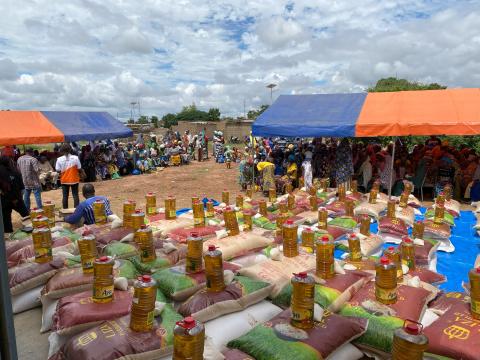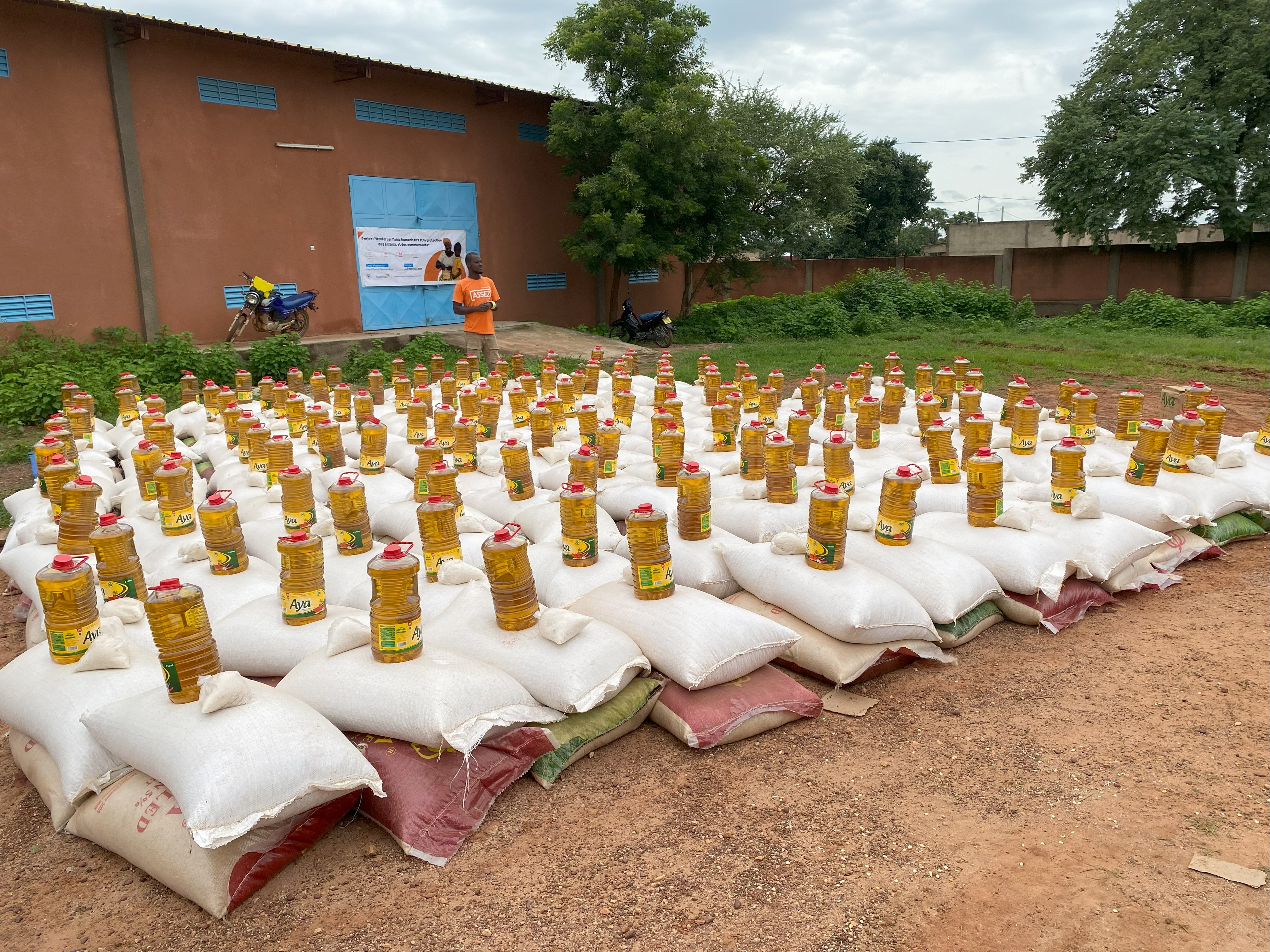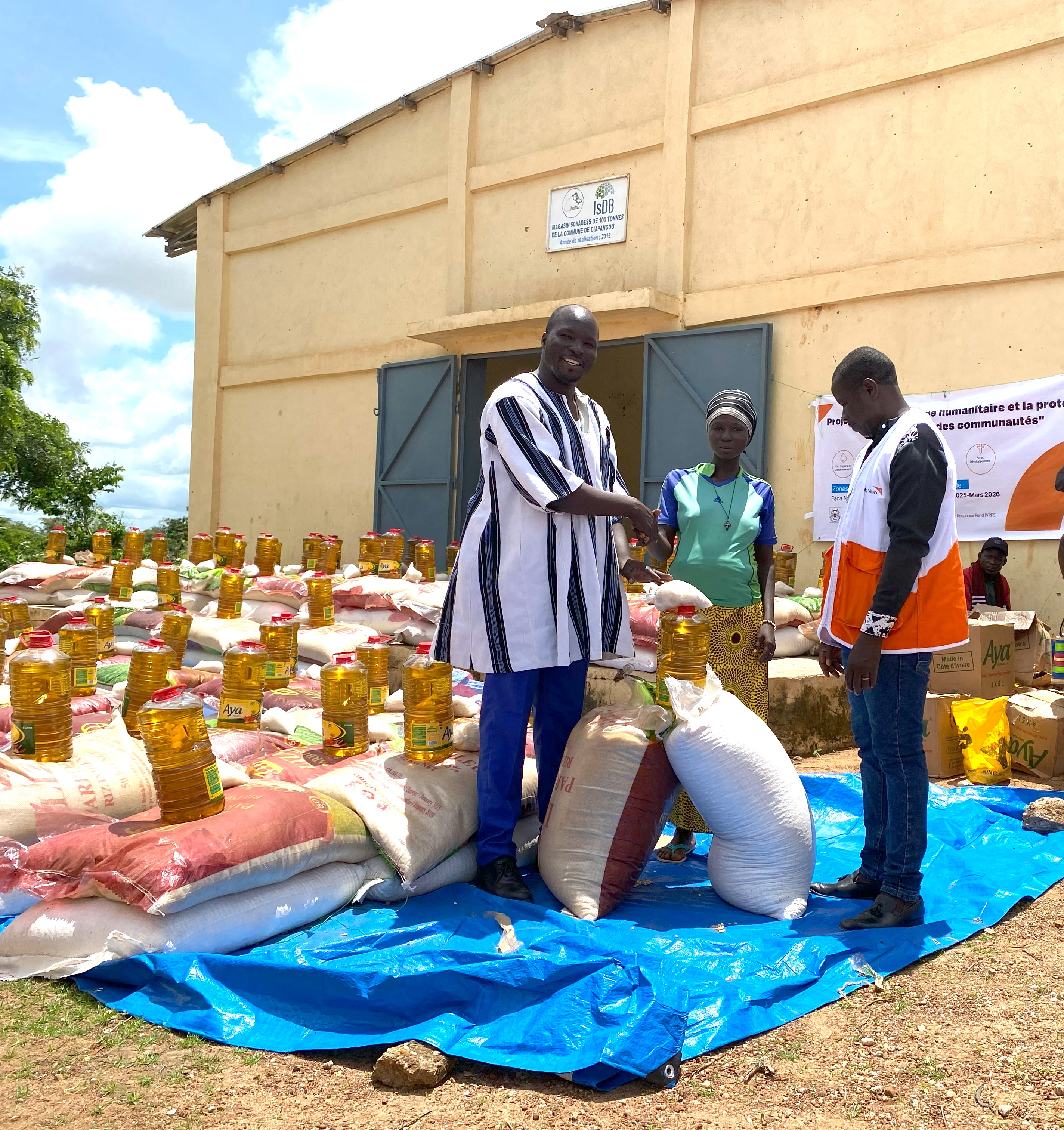World Vision responds to immediate food needs during Burkina Faso's lean season

In Fada and Diapangou in the Gourma region, World Vision carried out a food kits distribution from 20-22 August 2025 in order to meet the immediate needs of 514 vulnerable households. This distribution was initiated to enable children and their families to cope with the lean season. Between June and August, food stocks from the previous harvest are depleted and food becomes scarce and expensive, particularly affecting the vulnerable population.
“This food assistance is a great relief for us because we haven't been able to grow anything. And this is a very difficult time, so the aid has come at just the right moment. With this, we no longer need to buy food. We have received enough for ourselves and our children, and we are grateful to World Vision,” explains Bandba, head of a household of nine people.

Each household received: 50 kg of corn, 50 kg of rice, 1 kg of salt, and 5 litres of oil. This World Vision intervention to support the most vulnerable populations took place as part of the “Strengthening Humanitarian Aid and Protection for Children and Communities” project launched in July 2025 in Fada.
The distribution was attended by community leaders and technical officials from the Directorate in charge of Humanitarian Action in the province of Sandbondtenga.
The “Strengthening Humanitarian Aid and Protection for Children and Communities” project has four components: Protection, Food Security, Water, Hygiene and Sanitation, Faith and Development. It is being implemented with funding from the Visser Response Funds (VRF) and will end in March 2026.

In Kaya, in the Kiulsé region where the project has been underway for four years, World Vision also organised a food distribution on 22 August for 86 households in Kamdaogo-Goudrin, including 26 female heads of households.
“Even when we were at home, this time of year was a critical period for families; now that we are displaced, it is even more difficult. We are grateful for this assistance, which will help meet the children's food needs while we wait for the harvest,” said Justine.
A total of 600 households received support to cope with the lean season. A second distribution session was held for the same households in order to significantly reduce the impact of the lean season on children and their families.